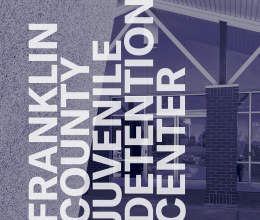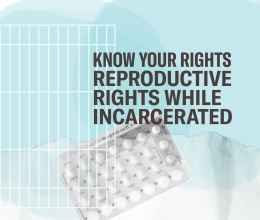
Testimony of Heidi Dalenberg
Riley Safer Holmes and Cancila LLP
General Counsel and Cooperating Counsel, ACLU of Illinois
Before the Senate Human Services Committee
Subject Matter On: Testimony on Department of Children and Family Services' hotline and investigate process
October 24, 2017
To Chair Morrison and members of the Senate Human Services Committee:
As legal counsel for the children under the care of the Illinois Department of Children and Family Services, we appreciate the opportunity to share this brief statement with you as you convene this hearing. We deeply regret that we are not able to be with you in person today, and would welcome the opportunity to appear before the Committee in the near future and share our concerns directly with the Committee.
We applaud the Committee for convening this hearing on operations within DCFS. Having been engaged with the Department for many years through the B.H. lawsuit and Consent Decree, we believe that diligent legislative oversight of DCFS is critical to addressing systemic, long-standing problems within the agency. And while we understand this hearing was called to focus on an important issue – appropriate operation of the DCFS hotline for reporting suspected incidents of child abuse or neglect – we urge the Committee to focus as well on another “front end” systemic problem the Department is facing, as highlighted in the Chicago Tribune story earlier this week. As the Tribune reported, there recently has been a serious and unacceptable increase in the rate of abuse and neglect of children receiving intact family services from DCFS’ contractors.
When the Department’s current Acting Director arrived earlier this year, she indicated that one of her goals was to strengthen front-end and intact family support that may allow a child to remain safely at home, without experiencing the inevitable trauma that occurs when a child is removed, however briefly, from his or her family. When intact services are provided successfully, that clearly is the best option for the child, the family, and the State. But the sad reality in Illinois is that a trend of increased instances of abuse and neglect of children receiving intact family services has been happening in Illinois for the past few years, as indicated in publicly available data published in the annual report issued by the Children and Family Research Center, University of Illinois, School of Social Work. As Plaintiffs’ counsel in B.H., we have raised this issue with the Department on numerous occasions, both with prior DCFS directors and with representatives of the Acting Director. We repeatedly have asked the Department to investigate the causes underlying the trend and to take corrective measures. The Department has not taken effective action in response.
The Chicago Tribune’s report and the Acting Director mark the start of the upward trend of abuse and neglect for intact family cases at the point in time when former Director Richard Calica moved to privatize the provision of intact family services. That may be a correct starting point, but it is critically important to keep in mind that there is no evidence to suggest that privatization itself results in higher danger to children. Why would intact family services, if properly funded and managed, be less safe for a child simply because the services were delivered by a private agency, rather than directly by the Department?
A core principle underlying the Department’s current reform goals, as articulated in its current court-approved Implementation Plan, is to engage in evidenced-based practice. In the past, the Department has abandoned any semblance of evidenced-based practice when a failure in the system is the subject of news reports. What the Legislature should look for from the Department now is the Acting Director’s clear articulation of both short-term and long-term steps to protect children who remain at home following a report of abuse or neglect. Certainly the Department should be looking for immediate, short-term steps that will improve the safety of these children, but a mere flurry of initial activity is not enough. Indeed, it is nothing but a distracting sideshow if the activity is not directed to the root cause of the deterioration of intact family care. Is the rise in abuse and neglect of these children due to poor initial investigations? Is it attributable to poor decision-making as to which children can safely remain at home while intact family services are provided? Is it geographically localized, or attributable to particular providers? Is it due to a dearth of appropriate service resources? Or poor case management? To all of the above, or to something altogether different?
As B.H. Plaintiffs’ counsel, our perspective is that this latest public crisis for the Department is just another indication that the Department remains paralyzed by a lack of leadership. After the recent public outcry over failures in another aspect of the “front end” of the child welfare system – investigations – the newly arrived Director announced her intent to provide short-term relief for overloaded investigators and to fix the “pipeline” for filling open investigator positions over the long term. So far, in our view, the Acting Director’s short-term fix has been inadequate, yet we see no signs that the Director is ordering any further corrective action. And we are concerned that as to this system failure with intact family services, the Acting Director has publicly acknowledged that a problem exists, but there is no indication as to how she intends to lead the Department through an initial response, an appropriate investigation, or implementation of a long-term and evidence-based solution for this essential front-end service.
Growing numbers of children continue to suffer, and in some instances, to die, while known to the Department and receiving intact family services. We encourage the Committee and its members to take a systemic look at problems within DCFS, with any eye toward demanding better outcomes for children across Illinois who come into contact with the agency. The pace of reform has been too slow at DCFS. The B.H. Plaintiffs continue to press for reform to the extent that is possible through litigation in federal court, but the Legislature has important powers available to it as well, both in respect to funding decisions and enactment of child welfare legislation. It is time for a real, sustained commitment to reform within DCFS. We believe that the General Assembly can be part of this solution.
Again, we stand ready to speak to the Committee about these matters in the future.



